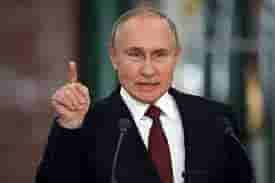In a recent statement, White House National Security Council Coordinator John Kirby emphasized that the decision on whether to engage in negotiations with Russia and the terms of such diplomatic talks rests squarely on the shoulders of Ukrainian President Volodymyr Zelenskyy. This comes amidst growing concerns about the escalating tensions between Ukraine and Russia and the urgent need for diplomatic solutions.

“White House Defers War Decisions to Ukraine Amid Escalating Tensions with Russia”
Background: The ongoing conflict between Ukraine and Russia has reached a critical juncture, with questions arising about the potential for diplomatic resolutions. The United States, a key ally to Ukraine, has been closely monitoring the situation, especially in light of the recent challenges faced by Congress in passing new aid for the region.
Ukraine’s Role in Decision-Making: John Kirby’s statement underscores the principle of sovereign agency for Ukraine in determining the trajectory of the conflict and the conditions under which negotiations with Russian President Vladimir Putin could take place. The Ukrainian government, led by President Zelenskyy, is facing the daunting task of deciding how and when the war will conclude and the terms under which diplomatic talks may occur.
The context of this decision is complicated by the persistent threat posed by a significant Russian troop presence in the region. The Kremlin continues to recruit additional forces, heightening concerns about the potential for further aggression against Ukraine. The looming winter months also present challenges, with uncertainties about whether Russian forces will maintain defensive positions or engage in offensive operations.
Urgency and Limited Resources: Kirby acknowledged the urgency of the situation, noting that Ukraine is actively seeking opportunities to both defend itself and launch counter-offensives. However, he also highlighted a concerning reality – the tools available to President Zelenskyy to navigate these complex dynamics are running out.
The absence of a clear resolution in Congress regarding additional aid further complicates Ukraine’s ability to address the escalating crisis effectively. As the conflict continues, there is a growing recognition of the need for international support and diplomatic initiatives to prevent further escalation and foster stability in the region.
International Implications: The White House’s stance, placing the decision-making authority on Ukraine, reflects the complex nature of international relations and the delicate balance of power in the region. It also raises questions about the role of the United States and other global actors in providing assistance and facilitating diplomatic efforts to resolve the conflict.
Conclusion: As tensions persist between Ukraine and Russia, the statement from the White House underscores the critical role of Ukraine’s leadership in shaping the path forward. President Zelenskyy faces the challenging task of deciding not only the terms of potential negotiations with Putin but also the overall strategy for navigating a conflict that has profound implications for the region and beyond.
















